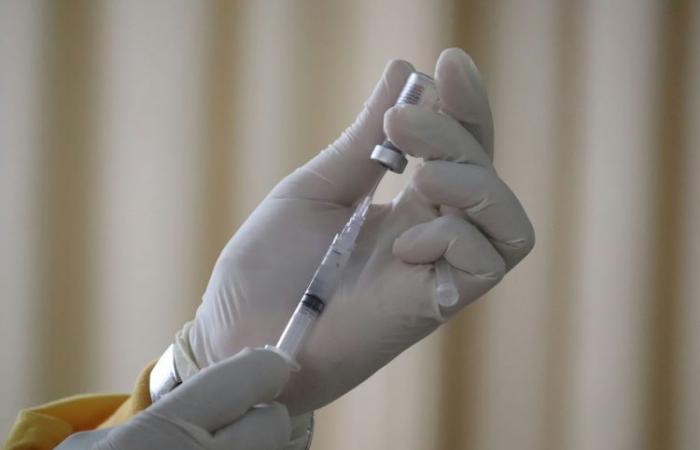There are still too many rheumatology patients not vaccinated for Herpes Zoster, Covid-19, influenza, HPV and pneumococcus: this is the appeal of the Italian Society of Rheumatology (SIR), which underlines the need for immunization for people affected by autoimmune rheumatological diseasessuch as rheumatoid arthritis, systemic lupus erythematosus, vasculitis, autoinflammatory diseases.
These are increasing diseases, often chronic, which frequently affect people of working age and with young children, with a severe impact on the quality of life and on the direct and indirect costs borne by the community. Furthermore, they cause an increase in morbidity and mortality, also due to an increased risk of infections.
Patients therefore need the protections offered by vaccines. To promote the importance of vaccinations at a national level and suggest standardized recommendations for clinical practice, SIR has created the “recommendations on vaccinations in patients suffering from rheumatological diseases”, presented today at a press conference in Rome. The recommendations were made according to the “Grade-Adolopment” methodology in compliance with the requirements of the National Guidelines System of the Istituto Superiore di Sanità and are therefore available on the ISS website.
“Rheumatological diseases are a heterogeneous group that includes around 200 pathologies, capable of affecting different age groups – he explains Gian Domenico SebastianiPresident SIR –.
For patients, the risk of contracting infections is higher than in the general population, due both to the immunosuppression caused by some of these pathologies and to the effects of therapies. The dangers associated with vaccine-preventable diseases are too often underestimated.
For example, Herpes Zoster or Shingles infection can be aggressive, manifest in an atypical way and cause complications that worsen the quality of life. Even a simple seasonal flu can have serious respiratory consequences.
Regarding Covid-19, the scientific literature is still constantly growing, but here too we wanted to indicate vaccination as good practice for all patients.
As SIR, we published recommendations for influenza and pneumococcal vaccinations in patients with autoimmune rheumatological diseases in 2020, but there were no comprehensive guidelines on vaccinations in rheumatological patients yet. For this reason we have decided to create a single document, which can act as a national guideline and direct healthcare personnel in the best way.”
“Today there is still an unjustified mistrust towards vaccines, which it is necessary to combat through correct information – he states Massimo AndreoniScientific Director SIMIT (Italian Society of Infectious and Tropical Diseases) –.
For this reason, having made the first recommendations for rheumatology patients is an important step, which will allow us to increase knowledge of infectious diseases in rheumatology and the benefits that can be obtained thanks to vaccines.
The recipients of the guidelines are in fact specialists in rheumatology, internal medicine, clinical immunology and allergology, hygiene, public health, infectious diseases, general practitioners and all health professionals involved in the management of patients with rheumatological disease in primary and secondary care and tertiary at both local and hospital levels.”
“The guidelines on vaccinations of rheumatology patients contain useful indications for Seasonal influenza, Pneumococcus, Human papilloma virus, Haemophilus influenzae b, Hepatitis A, Hepatitis B, Inactivated polio, Meningococcus B, Conjugated meningococcus ACWY, Tetanus, Diphtheria and Pertussis, Typhoid, Zoster and good practices for COVID-19 – underlines Giovanni Gabutti of SITI (Italian Society of Hygiene, Preventive Medicine and Public Health) -.
These are the most common infections for immunocompromised patients, from which it is important to protect them. Joint work, online, is necessary so that patients are always informed about the protection opportunities offered by vaccines and how to participate in vaccination campaigns.”
“Immunization against the most widespread viruses in the population is fundamental – he adds Laura Sticchi, of SITI –. For example, seasonal influenza can cause fatal consequences in immunocompromised or elderly patients.
In Italy, especially among the elderly, immunization rates are in serious decline: today only 56% of over 65s are vaccinated. Regarding Covid-19, the number of vaccinations administered in 2023 is among the lowest in Europe. These are numbers that clearly show the importance of intervening with information and awareness campaigns on this issue.”
“It is important to remember that many rheumatological diseases are chronic, which is why they require the prolonged use of immunosuppressive drugs, which expose patients to an increased risk of developing infections – he comments Fabrizio ContiSIR Councilor –
Vaccines are able to reduce the risk of infection and, if this occurs, reduce its consequences. For this reason it is important that patients and referring doctors become aware of their importance, to eliminate the risk of serious outcomes due to the combination of rheumatological disease and infections.”
“We are very proud of the work done in drafting the new guidelines – he concludes Carlo Scirèof the SIR Study Center -, was a complex process that required the involvement of numerous professionals, and which from today will allow all specialists and general practitioners to accompany their patients in a standardized way.
With a view to correct information, our objective is that the recommendations also reach those responsible for policies and organization of care within the Italian National Health System, so that they obtain maximum diffusion.”






